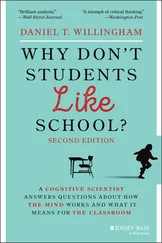Hideo Furukawa - Belka, Why Don't You Bark?
Здесь есть возможность читать онлайн «Hideo Furukawa - Belka, Why Don't You Bark?» весь текст электронной книги совершенно бесплатно (целиком полную версию без сокращений). В некоторых случаях можно слушать аудио, скачать через торрент в формате fb2 и присутствует краткое содержание. Город: San Francisco, Год выпуска: 2012, ISBN: 2012, Издательство: Haikasoru, Жанр: prose_magic, Современная проза, на английском языке. Описание произведения, (предисловие) а так же отзывы посетителей доступны на портале библиотеки ЛибКат.
- Название:Belka, Why Don't You Bark?
- Автор:
- Издательство:Haikasoru
- Жанр:
- Год:2012
- Город:San Francisco
- ISBN:978-1-4215-5089-3
- Рейтинг книги:4 / 5. Голосов: 1
-
Избранное:Добавить в избранное
- Отзывы:
-
Ваша оценка:
- 80
- 1
- 2
- 3
- 4
- 5
Belka, Why Don't You Bark?: краткое содержание, описание и аннотация
Предлагаем к чтению аннотацию, описание, краткое содержание или предисловие (зависит от того, что написал сам автор книги «Belka, Why Don't You Bark?»). Если вы не нашли необходимую информацию о книге — напишите в комментариях, мы постараемся отыскать её.
https://www.youtube.com/watch?v=ay_DcZ6RDFA https://www.youtube.com/watch?v=Orvqrqjk9pU
Belka, Why Don't You Bark? — читать онлайн бесплатно полную книгу (весь текст) целиком
Ниже представлен текст книги, разбитый по страницам. Система сохранения места последней прочитанной страницы, позволяет с удобством читать онлайн бесплатно книгу «Belka, Why Don't You Bark?», без необходимости каждый раз заново искать на чём Вы остановились. Поставьте закладку, и сможете в любой момент перейти на страницу, на которой закончили чтение.
Интервал:
Закладка:
America had succumbed to narrow-mindedness. America was color blind. In 1963, China was anything but a satellite of the Soviet Union, but America didn’t see that.
Perhaps it would have, had it lowered its gaze to the level of the dogs. Yes, the dogs. The PLA Military Dog Platoon. If America had paid attention to that platoon, it would have seen that China and the Soviet Union were gradually drifting apart.
It was unmistakable.
First there was the Korean War. China dispatched the Chinese People’s Volunteer Army. This was in October 1950, eight months after the Sino-Soviet Treaty of Friendship, Alliance, and Mutual Assistance. Chinese forces had some military backing from the Soviet Union, but it wasn’t enough to make up for the poverty of their munitions, and during the Fourth and Fifth Campaigns they were repeatedly overwhelmed by the superior power of the UN forces, which had largely been provided by the American military. The UN forces’ “superior power” came from the fact that they had modern weaponry, modern military strategy. Up to this point, the Chinese had relied on human-wave tactics and had been trained to fight guerrilla wars; now they had to confront the inadequacy of these techniques for an army dedicated to national defense. It took five million soldiers deployed to the Korean Peninsula to learn this lesson. Then, in July 1953, a truce was called. Predictably, the Chinese military took advantage of this opportunity to shift its strategy, to begin preparing its troops to fight a modern war.
And the dogs?
Three had been captured and incorporated into the PLA. Jubilee was the only bitch. The two males were News News (aka E Venture) and Ogre. All three had formerly been American dogs, but now they were Chinese. Purebred German shepherds. When Mao announced the establishment of the People’s Republic of China, the military had no military dogs. Now, in the wake of the Korean War, it had become focused on “modernization.” Twentieth-century war. War in a century of war. The modern military dog was the symbol of it all.
Dogs on the front lines.
So China created its Military Dog Platoon. First the American dogs were taken as prisoner-dogs-of-war on the battlefields of the Korean Peninsula. Then, after the fighting ended, these three elite supporting combatants were given Chinese citizenship, as it were. They were incorporated into the PLA’s first military dog platoon, right from the get-go. All three: Jubilee, News News (E Venture), and Ogre. Making a platoon of thirty-two dogs. At that time, in 1953, China was still on good terms with the USSR, so the platoon was based largely on the Soviet model. Most of the dogs were Russian laikas. Modern military dogs had first entered Soviet military history, incidentally, as early as the 1920s. The military had dogs, that is, even before the USSR itself existed. By the time the Great Patriotic War against Nazi Germany started on June 22, 1941—a Sunday—ten thousand military dogs had been trained. And so the PLA decided to follow the Soviet model. Military officials contacted the Central Military School of Working Dogs in Moscow and received a gift of twenty-nine Russian laikas. This was one of the many ways in which the Soviet Union provided China with military support.
In this sense, the composition of China’s first military dog platoon, with its heavy slant to the East—twenty-nine Russian laikas and only three German shepherds—symbolized the Sino-Soviet honeymoon. Alternatively, you might say the symbolism lay in the special weight China’s military placed on Russian history. The three German shepherds, Jubilee, News News (E Venture), and Ogre, were valued as extraordinarily capable dogs—the most modern of the modern—but they were excluded from the breeding program.
What happened, as a result, to the dogs?
In the winter of 1953, the males were castrated. The bitch was carefully kept away from any lusty males in the platoon.
The bitch. That means you, Jubilee.
You were kept away from the males, but still you harbored the potential for growth. There were times when you hungered for a male. But you weren’t allowed to mate. When you let your eagerness show too long, they whipped you. No sex for you, Yankee dog!
This situation continued until 1956. Then, in February, first secretary of the Communist Party Khrushchev delivered his speech “The Personality Cult and its Consequences” in a closed session at the Twentieth Congress of the Communist Party of the Soviet Union. It was a “secret speech” in which he presented a thorough critique of Stalin. He had given no indication that anything like this was in the wings. The other communist nations could have been consulted, but they were not. China, above all, had been ignored. The content of the speech became public almost immediately, and when Mao learned the details, he was dumbstruck. What! Stalin… a despot?
What are we Chinese supposed to do when Khrushchev takes a stance like that, when we’ve been working so hard to realize an ideal state modeled on Stalin’s USSR?
Hey, Khrushchev! Hey, Nikita… Nikita Sergeyevich!
We’ve got everyone worshiping Chairman Mao over here! Do you realize the mess you’re causing?
And so, starting in 1956, signs of a mutual antagonism between Mao and Khrushchev began to appear. The effects of this friction were reflected on the Chinese side in two areas of its military strategy: its nuclear policy and its dogs. First, the dogs. That means you, Jubilee. At last you were released from the prohibition on mating. Sex was fine now, you were told that summer. No longer, it was decided, would the PLA Military Dog Platoon be based exclusively on the Eastern model, in terms of its structure or future breeding plans.
It was German shepherd season now.
Twenty-two males were purchased, all purebred German shepherds, all bursting with youth, and you, the only bitch in the platoon, became the object of their affection. On the grounds of the camp. They had decided to make the most of your lineage as an American elite.
And you, Jubilee—you were hungry.
Who were you, after all? Do you remember? Do you recall, for instance, your sister? Sumer was her name. You were separated six months after you were born. Sumer hadn’t made it as a military dog; she was recognized, instead, for the perfect beauty of her form and bought by a breeder. She entered the dog-show world. She remained in America, on the mainland. She gave birth to any number of puppies and was eventually subjected to a peculiar fate. She suckled seven pups that were not her own. And what about you?
ME?
You were across the Pacific. You had not participated in planned breeding. You yearned to mate but weren’t allowed. You wanted to get pregnant, but that was forbidden. You understand what that means? You were starved for a male. You: Jubilee.
ME?
Yes, you.
Woof! you barked.
You didn’t get pregnant in 1956. You didn’t go into heat in spring 1957. You were getting old, so they fed you specially prepared food. Your coat regained its youthful shine. But still you didn’t get pregnant. They prepared traditional Chinese medicines to make you go into heat. They even fed you human milk. Multiply, multiply! But summer came, and still there was no sign that you were pregnant. Then it was autumn. November. Early in the month, something happened. You raised your head to the heavens. You didn’t know why, it was just an impulse that came over you. SOMEONE’S LOOKING AT ME, FROM ABOVE. IT’S A DOG, A DOG’S GAZE. You lifted your head and peered up into the vastness of the sky.
You thought you had seen a star there, shooting by.
Not falling, but shooting.
You realized how starved you were. Your procreational abilities came one hundred percent back on track. They were turbo-charged. And you gave birth, Jubilee, in 1958—not once, but twice. You bore fifteen puppies in total. You gave birth twice more in 1959. Twelve more puppies. Then, in 1960, you managed to give birth one last time in what could only be considered a super -advanced-age pregnancy. At the same time, in the vast lands up north, on the same continent—in another communist state by the name of the USSR—a wolfdog named Anubis with an erection strong beyond his years kept forcing it into bitches, planting his seed. He was a father beyond his years. You, Jubilee, were a mother beyond your years. This time you gave birth to four puppies. When all was said and done you had brought thirty-one puppies into the world.
Читать дальшеИнтервал:
Закладка:
Похожие книги на «Belka, Why Don't You Bark?»
Представляем Вашему вниманию похожие книги на «Belka, Why Don't You Bark?» списком для выбора. Мы отобрали схожую по названию и смыслу литературу в надежде предоставить читателям больше вариантов отыскать новые, интересные, ещё непрочитанные произведения.
Обсуждение, отзывы о книге «Belka, Why Don't You Bark?» и просто собственные мнения читателей. Оставьте ваши комментарии, напишите, что Вы думаете о произведении, его смысле или главных героях. Укажите что конкретно понравилось, а что нет, и почему Вы так считаете.












